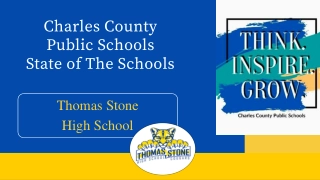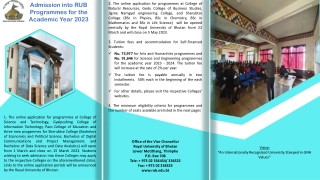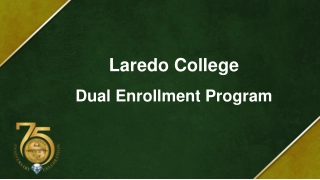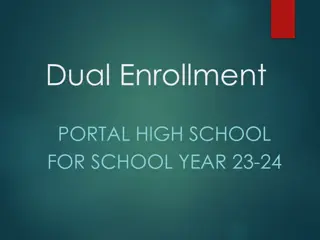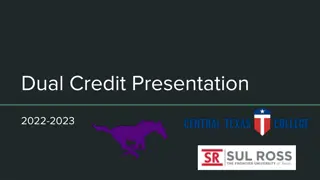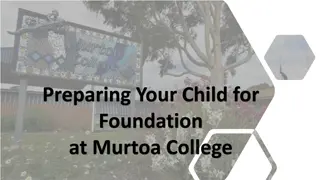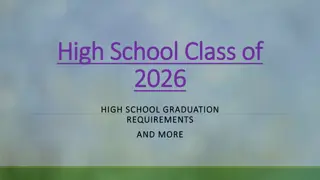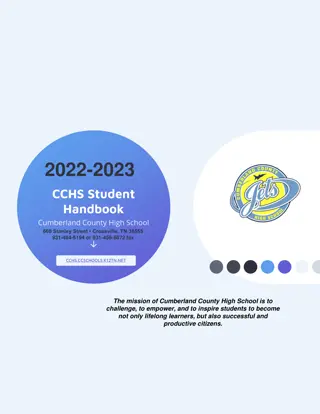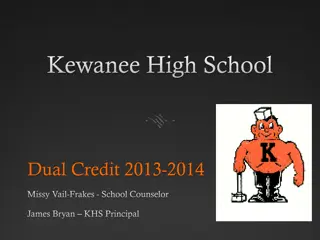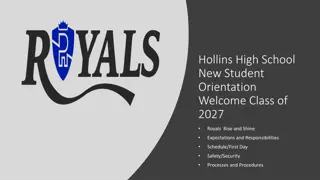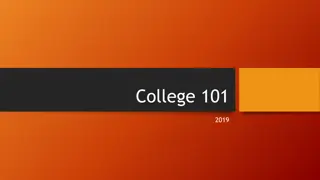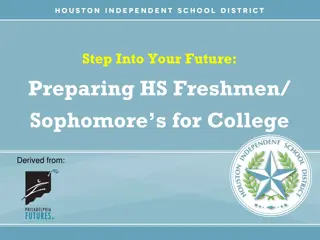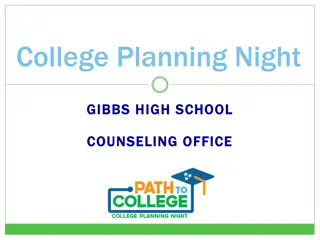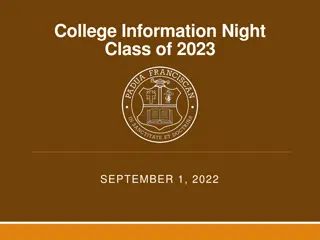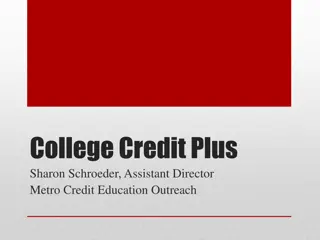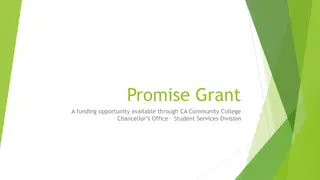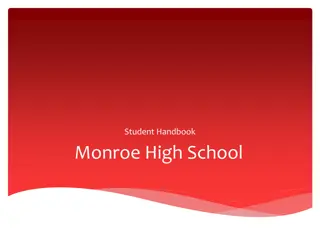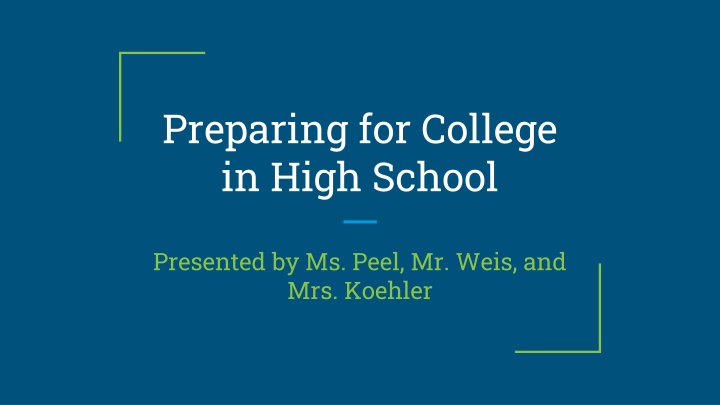
Preparing for College in High School: Expectations, Responsibilities, and Competition
Get ready for college by understanding expectations, responsibilities, and competition. Discover who is responsible for shaping your future and how you can actively contribute. Learn where you stand among your peers and what steps to take in high school to secure a successful future.
Download Presentation

Please find below an Image/Link to download the presentation.
The content on the website is provided AS IS for your information and personal use only. It may not be sold, licensed, or shared on other websites without obtaining consent from the author. If you encounter any issues during the download, it is possible that the publisher has removed the file from their server.
You are allowed to download the files provided on this website for personal or commercial use, subject to the condition that they are used lawfully. All files are the property of their respective owners.
The content on the website is provided AS IS for your information and personal use only. It may not be sold, licensed, or shared on other websites without obtaining consent from the author.
E N D
Presentation Transcript
Preparing for College in High School Presented by Ms. Peel, Mr. Weis, and Mrs. Koehler
Part 1: Expectations
Quick-Write for Students: Who is responsible for preparing you for your future? What responsibilities and roles does this person(s) have? --Note: You may list individuals and their roles/responsibilities
WHO IS RESPONSIBLE FOR YOUR FUTURE? YOU
People in Your Life, Their Responsibilities, and How You Can Help Them People in Your Life Your Responsibilities in Response Teacher: Provide Rigorous, College-Ready Curriculum Do the work. Fully. To the best of your ability. From the 9th grade. (Trust the process. We know what we are doing.) GPA matters. Teachers: Provide you with practice and prep for the ACT and SAT Sign up for the ACT and SAT. Look for dates that work for you. Study for the test, maybe take a prep course, and take the test seriously when you take it (and you should take them 2-3 times or more) Parents: Communicate financial abilities and responsibilities Look up scholarships and grants. Actually apply for them. Student Services Team: Have information available to you for scholarships, college visits, etc. Go to college visits on your own. Find your own fit. Student Services Team: Communicate expectations for entry for multiple options after high school Ask questions. Find the deadlines for your own applications. INVESTIGATE ON YOUR OWN.
Who is Your Competition When You Start Applying? CGS Student Cedar Ridge Student (Orange Co.) Williams Student (Alamance Co.) Durham Academy Student (Durham Co., Private) 4.14 4.86 4.72 4.56 GPA Class Rank 11th of 43 (Top 25%) 11th of 230 (Top 4%) 11th of 250 (Top 4%) 11th of 80 (Top 13%) 1100 (560 M, 540 V) 1370 (670 M, 700 V) 1310 (680 M, 630 V) 1520 (750 M, 770 V) SAT/ACT Score after Superscore 4 ACC Courses 8 IB Courses, plus honors classes 8 AP courses, plus multiple honors classes 10 AP Courses, plus multiple honors classes Number of AP/IB/College Courses Chorus and Work President of Student Body, Section Leader in Band Traveled with Sports outside of school w/ Offers from App, UNCCH, & ECU Lead in Multiple HS Plays, Volunteers with Church Youth Group Extracurriculars
Part 2: Where do you Fall and What is best for your Future?
How do I get there?- 9th Grade Timeline Keep up your GPA (It matters NOW. Ask your friendly neighborhood math teacher if it is possible to take a freshman GPA of 1.8 to a 3.9 unweighted by your senior year) It also affects your entrance into AP and ACC Courses Get involved in your community by competing in sports, volunteering, participating in the arts, engaging in a religious community, etc. Strive to Be a leader in these areas. There could be scholarships in your future! If you would like to be an athlete at a D1 school, you need to be participating in travel sports to be seen. Maintain good relationships with your teachers (think recommendation letters to college). Create a CFNC.org account.
How do I get there?- 10th Grade Timeline Maintain your GPA and begin researching ACC classes Continue your work in various extracurriculars such as work, sports, the arts, religious communities, and other forms of community environment. Strive to be a leader in at least one area Begin studying for standardized tests such as the ACT and the SAT. What is on each test? What skills do you need to focus on? (Hint: Use your PSAT and Pre ACT Scores to help you study) Create a CFNC.org account Begin thinking about possible majors and START ASKING QUESTIONS about college fit (think financially, socially, AND academically). Start college visits. ASK QUESTIONS ABOUT YOUR FUTURE TO PEOPLE WHO CAN HELP
How do I get there?- 11th Grade Timeline Take academically rigorous courses (such as ACC and AP) to boost your GPA and show initiative on your college application Maintain leadership positions in your extracurriculars BEGIN TAKING ACT AND SAT Take at least ONE ACT or SAT before March of your junior year. Take them multiple (2-3) times. Superscoring: Many universities convert ACT or SAT scores to compatible scores, and then take the best score. Ex: On SAT 1, you scored a 570 on Math and a 520 on Verbal. You study reading, and on SAT 2, you score a 530 on Math and a 590 on Verbal. University A will take your first math score (570) and your second verbal score (590) for a total score of 1170. BEGIN COLLEGE VISITS SERIOUSLY Maybe take one by December and an additional two or three by March. Know your options and see if your top picks are really good fits for you. ASK QUESTIONS ABOUT YOUR FUTURE TO PEOPLE WHO CAN HELP
How do I get there?- 12th Grade Narrow down your college search to about five schools; be finalizing your college visits. Pro-tip: Apply to your dream school, but have one safety school, too. KNOW YOUR DEADLINES YOU are responsible for knowing your college application deadlines. Communicate them with those providing you with transcripts and letters of recommendation. (It is okay to be politely annoying if they are not meeting deadlines that you communicated) Early Action and Early Decision-One is binding while the other isn t. Often different dates for different universities. One is normally in mid-Oct and the other usually is early Nov Complete FAFSA to be eligible for financial aid Write a well-crafted college admissions essay (August and September) Re-take an ACT or SAT if need be BEFORE October Look for letters of recommendation-Teachers, coaches, religious leaders, etc. KEEP UP YOUR GRADES (you could lose an admission)
What Other Options Do I Have? What if I do not see myself at a four year university? Consider the following: The Military: A great way to serve our country while getting work experience before going to college. Things to consider: Go to a recruitment office, take the ASVAB Community College: Most community colleges have applications and entrance standards. Be aware of your requirements! Trade school: Also has admission requirements, but often shorter than a two- year degree. The work force: While this is always an option, keep in mind that most industries require some sort of training after college to move up.
Resources to Explore Your Options: EVERYONE needs to go to CFNC.org and create an account. They have plenty of resources for you NO MATTER YOUR PATH Go to CFNC.org Click Create an Account at the top of the page Choose high school student and enter your date of birth Type in Clover Garden into the school you attend Follow the instructions to create an account Additional Resources to explore for a good College Fit: US World News and Report College Search College Board (Big Future)

